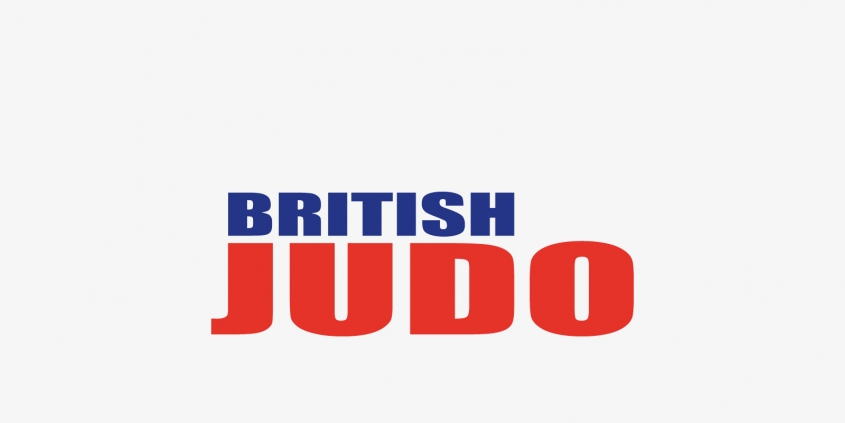Scotland Sweeps to Final Day Success as Home Nations Dominate Medal Table
The final day of judo at the 2014 Commonwealth Games belonged to the hosts with three gold medals, as the final medal haul for home nations stood at 29 medals.
It was also a golden day for one-half of British Judo’s ‘golden couple’, Scotland’s Euan Burton and England’s Gemma Gibbons, as Burton won gold in the -100kg category, whilst Gibbons picked up -78kg silver.
Scotland led the way in the day’s medal tally, picking up six including three gold, and their final total is the biggest medal haul of any Scottish Commonwealth team. Wales picked up the first Commonwealth judo gold medal in their history and a bronze, their first judo medals of the games. England won two silvers and a bronze.
All eyes were on the -100kg category where Team Scotland flag-bearer Euan Burton was aiming to overcome the disappointment he suffered at London 2012 and win gold on home soil in his final competitive tournament. Having previously competed at -81kg, he stepped up to the heavier weight and started in style, quickly throwing Evans Kengara of Kenya for ippon. His second contest was a much tighter affair against Cameroon’s Dominic Dugasse but a throw late in the contest, transitioning to a hold down was enough to book a semi-final place. Three-time Oceanic Champion Jason Koster stood between Burton and the final. The Scot came agonisingly close to a victory via hold down but quickly finished the job forcing the Kiwi to submit with some great groundwork. In the final he faced Shah Hussain Shah of Pakistan, an Asian games quarter-finalist, and got the better of him with a throw for waza-ari before applying an armlock and forcing Shah to submit.
Talking after his win Euan Burton said: “Not too shabby for a 35-year-old. It’s been a nervous day all-round. The excitement was building all the way up to the tournament and it was great. This doesn’t make up for London but it is a fantastic tournament and I am proud that I have done this for Judo Scotland and for all the guys fighting.
“This is me now done and dusted. I will never fight on the world stage again.
“Hopefully we will get more kids through the door wanting to be the next Renicks sisters or the next Sarah Clark – some might even want to be the next Euan Burton.”
However, the -78kg category belonged to Team Wales judoka Natalie Powell who won Wales’ first ever Commonwealth judo gold medal and resigned Burton’s wife and Olympic silver medallist, England’s Gemma Gibbons to silver. Gibbons made light work of her opposition en-route to the final, first throwing Brigitte Rose of the Seychelles and following up with an ippon win over Cameroon’s Hortense Mballa Atangana. Meanwhile, the draw had saw Powell , who sits above Gibbons in the world ranking list, straight into the semi-finals where she defeated Canadian Ana Pourtuondo, throwing her for waza-ari before making sure of the win with another throw for ippon. Powell proved too strong for Gibbons in the final, throwing her early for waza-ari and dominating the remainder of the contest to win gold.
Commenting on the win Powell said: “All of my hard work paid off today. I’ve heard so many people say Gemma Gibbons is the number one, Natalie Powell is not going to win, but I hope I have proven them wrong.”
Scotland and England went head to head in the final of the +78kg category as Sarah Adlington came up against 19-year-old Jodie Myers. Adlington took a semi-final win by hansoku-make against Esther Akinyi Ratugi as the Kenyan picked up four shidos, whilst British Judo Centre of Excellence athlete Myers threw India’s Rajwinder Kaur for ippon and then threw Annabelle Laprovidence of Mauritius for waza-ari and holding her down for ippon in the semi-final. The pair battled in the final with a yuko throw from Adlington proving the decisive score and giving the gold to Scotland.
Sarah Adlington said: “The crowd were amazing. It was the first time I have fought since February and for me to come back with this it has given me the confidence to try to qualify for Rio. There is always pressure and I was fighting a junior in the final. I am pleased being back doing what I love.”
Royal Marine and Team Scotland member Chris Sherrington won the +100kg gold medal in the final contest of the games. His first fight saw him up against Northern Ireland’s Gavin McNeill and he claimed victory by holding him down for ippon after throwing him for waza-ari. In the semi-final he took on current Oceania champion, Sam Rosser of New Zealand defeating him with an ippon throw. The final pitted him against Ruan Snyman of South Africa. Sherrington started on the front foot and was soon a waza-ari ahead. He kept attacking and a second waza-ari score gave him ippon and the Commonwealth title. Welshman Mark Shaw took his country’s second medal, throwing New Zealand’s Sam Rosser for waza-ari in the bronze medal contest before holding him down for the victory.
“The crowd have been spectacular today. They could almost smell the sweat on the player. You are on his back, you are there going into battle with them. That is what has made this a spectacular event.
“You don’t choose where you are born but you choose where you live and who you compete for. I compete for Sports Scotland, JudoScotland and I’m proud.”
There were three medals in the -90kg category and Scotland’s Matt Purssey led the way with silver. He started with a win by ippon over India’s Avtar Singh forcing him to submit. The quarter-final was a tight contest against Stephane Ombiogno but the Cameroonian picked up four shidos giving Purssey the win by hansoku. He then faced Australia’s four-time Oceania Champion Mark Anthony for a place in the final, holding down the Australian for victory right at the end of the contest. In the final he fought Zack Piontek of South Africa, an African Open winner and lost out by a late yuko whilst behind on shidos. There were bronze medals for Gary Hall of England and Scotland’s Andy Burns. Hall armlocked New Zealand’s three-time Oceania champion Dill-Russell for ippon, whilst Burns won by two yuko to one against Australia’s Mark Anthony.
The final medal table sees England and Scotland finish with 13 medals and 6 gold medals each, England ahead with four silver medals to Scotland’s two. Wales took one gold and one bronze with Northern Ireland picking up a bronze.
The full final medal table can be seen below:
Commenting on the success of the games, British Judo Chairman Kerrith Brown said: “As Chairman of British Judo it has been absolutely fantastic to see some great judo. This will give the athletes a solid platform to move forward to the next level.
“We would love Judo to be a core sport of the Commonwealth Games. It is currently an optional sport but we will be trying to lobby to get in as one of the core sports.
“It has been incredible the amount of coverage we have had over the last two days.”
Talking about the impact of the games on the sport in the UK, British Judo CEO Andrew Scoular said: “In my opinion it shows the strength of judo across the home countries. It is good for me to see the medals being shared out as it is not about where they come from but about us being united as an association and a sport.
“The youngsters are doing very well, which is good news for our Centre of Excellence. Nekoda Davis gained gold, Jodie Myers silver and Katie-Jemima Yeats-Brown bronze.
“This level of interest has been a great success for us and having a massive activation from this multi-sports games is key. You don’t often see judo players sitting on the couch of a national TV station. That for me is the best thing for us – the opportunity for young people to enjoy the sport. Our role is to get people to understand what judo is about so can use this as a springboard to get judo out there”.




